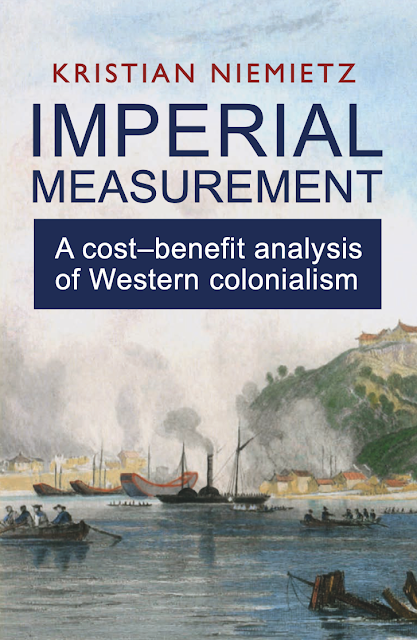"In recent years, we have seen a renewed interest in Britain’s imperialist past: the British Empire, the slave trade and the Caribbean slave labour plantations. More precisely, we have seen a revival of the idea that the wealth of the Western world – and Britain’s in particular – was originally built on slavery and colonial exploitation.
"There is a lot to be said for a ‘warts-and-all’ approach to history, which does not gloss over or relativise the darker chapters of a country’s past. But the problem with the above narrative is that it is bad economics. ... [I]t is quite possible that the empire was a net loss-maker for Britain...."In the eighteenth and nineteenth centuries, the great bulk of Britain’s economic activity was domestic. Even then, Britain’s most important trading partners in the eighteenth and nineteenth centuries were not its colonies but other industrialising powers, such as Britain’s Western European neighbours.
"Colonial empires do not come cheap. The acquisition, defence and administration of overseas territories require huge upfront investments and ongoing maintenance costs. This is why, in the eighteenth and nineteenth centuries, Britain and other colonial empires had higher levels of military expenditure than their less imperialist neighbours and, consequently, a substantially higher tax burden.
"The economic benefits of empires are often overstated. Empires boost trade between their constituent parts, but they are far from the only determinant of trade volumes. At least some trade between Britain and India, for example, would have occurred anyway, even if India had never been colonised, or even if it had been colonised by some other European power.
"The cost–benefit analysis for other European colonial empires is similar. ...."The transatlantic slave trade was no more important for the British economy than brewing or sheep farming, but we do not usually hear the claim that ‘brewing financed the Industrial Revolution’ or ‘sheep farming financed the Industrial Revolution.’"Not all Western countries were major colonial powers.
"Some had only minor colonial possessions, some had only short-lived colonial empires, some only acquired colonies very late in the day, and some never had any colonies. [Yet] those minor players in the colonial arms race industrialised at roughly the same speed as the major colonial empires, so if there was an ‘empire bonus,' it is not visible in the macro data."The claim that colonialism and slavery made the Western world rich is often accompanied by the claim that colonialism and slavery made the non-Western world poor. This companion thesis stands on stronger ground. There is indeed evidence for the long-term scarring effects of colonialism and slavery - [especially places that were once subject to short-termist colonialist extraction] — since these corrupted the institutional development of the affected regions."~ Kristian Niemitz, from his new monograph 'Imperial Measurement: A cost–benefit analysis of Western colonialism'
Sunday, 26 May 2024
"Colonial empires do not come cheap."
Subscribe to:
Post Comments (Atom)






1 comment:
Two good companion pieces to this interesting debate. It took me a while to find this, but enjoy from 2018, How Britain stole $45 trillion from India by a "renowned economist.
And a specific counter to it, British India and the $45-Trillion Lie
Post a Comment